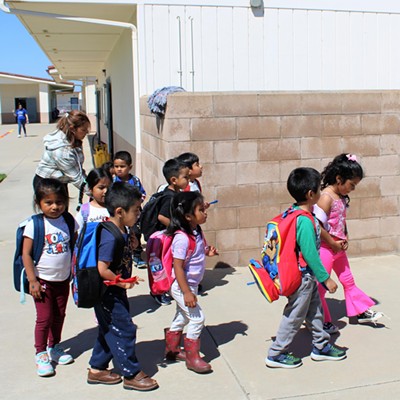A ruling by a federal judge on Feb. 13 overturned the 2017 decision to take Camp 4 into trust for the Santa Ynez Band of Chumash Indians, pulling the land off the Chumash reservation and returning the case to the Department of Interior for further action.
In the decision, U.S. District Court Judge Stephen Wilson found that Lawrence Roberts, who issued the Department of Interior's decision on the Camp 4 fee-to-trust acquisition, was not authorized to do so.
Roberts served as principal deputy and first assistant to the Department of Interior's assistant secretary of Indian Affairs, Kevin Washburn, until Washburn resigned in 2015, according to the court's summary judgment. After Washburn's resignation, Roberts became the interim assistant secretary of Indian Affairs, and in January 2017, he issued his decision to put Camp 4 into fee-to-trust.
Barry Cappello, lead attorney for Anne Crawford-Hall, the Santa Ynez Valley landowner who successfully appealed and overturned the Department of Interior's decision on Camp 4, argued throughout the trial that Roberts did not have the authority to hand down that decision.
Under federal law, Cappello said a federal employee who is appointed to such a position may only hold power as an "acting" employee for 210 days before returning to his or her previous position. The statute, Cappello said, is intended to ensure that presidential appointees are eventually approved by Congress. When Roberts made his decision on Camp 4, he had already served more than 210 days as acting assistant secretary of Indian Affairs and could no longer hold that position, Cappello said.
With the Feb. 13 decision, Cappello said Camp 4 is no longer a part of the Chumash reservation.
The Chumash have some options: The tribe could reapply to the Department of Interior to put the land in trust, essentially starting the process from scratch. They could file an appeal to the Ninth Circuit Court of Appeals, which Cappello said could take years. They could work to get House Resolution 317 passed through Congress, which, if passed, would put the land in fee-to-trust for the tribe and bypass the Department of Interior. Or, Cappello said, the tribe could attempt to build on the land without its being in trust, meaning the project would have to meet county and state codes.
"But you can't cut corners," Cappello said, adding that his client, Crawford-Hall, has been fighting for years to stop this land acquisition.
Crawford-Hall owns San Lucas Ranch, land that sits directly across from Camp 4. San Lucas Ranch owners have made numerous attempts to stop the Chumash from developing on Camp 4, a 1,400-acre parcel of land that has been at the center of heated debates over land and water use, among other environmental and political concerns, even before it was placed in fee-to-trust by the Bureau of Indian Affairs in January 2017.
In various lawsuits and complaints, Crawford-Hall has argued that the fee-to-trust acquisition was unlawfully done and that the Chumash's development plans would negatively impact the environment and threatened species, including vernal pool fairy shrimp.
After the ruling on Feb. 13, some Santa Ynez Valley residents, including members of the Santa Ynez Valley Coalition and the Santa Ynez Valley Concerned Citizens, cheered the federal court's decision to remove Camp 4 from the Chumash reservation.
In a statement emailed to the Sun, Chumash Tribal Chairman Kenneth Kahn called the recent ruling on Camp 4's trust status "unfortunate," and said the Chumash believe the decision was made lawfully.
"The tribe purchased the Camp 4 property in 2010 with the intention to build homes for our tribal members, and nine years later, we are still working on making that dream a reality," Kahn wrote. "Camp 4 has always been historic tribal land, and the tribe will continue to fight to ensure adequate housing for its members."









